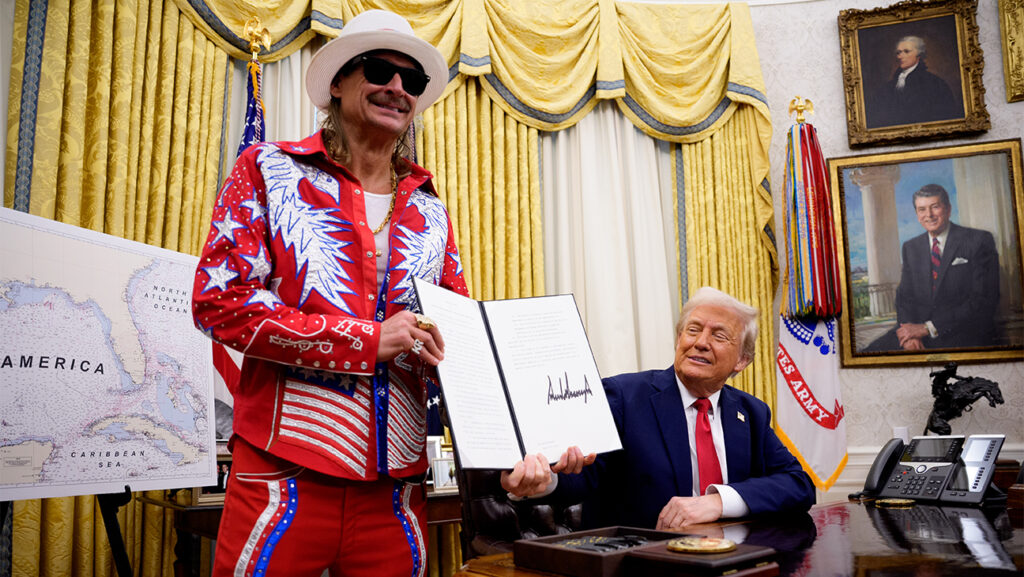President Donald Trump signed an executive order on Monday targeting ticket scalpers and price-gouging tactics on the secondary ticketing marketplace.
The order calls for the Federal Trade Commission to increase enforcement of the BOTS Act, a 2016 legislation that made it illegal to use bots to cut lines and buy mass amounts of tickets for concerts or sporting events so they can sell them at major markups. While that bill was celebrated when it was passed into law, the BOTS act has only been enforced a single time since then.
Beyond that, the order’s declarations are a bit vaguer. The order calls on the FTC to “ensure price transparency at all stages of the ticket-purchase process, including the secondary ticketing market.” Trump’s order also calls on the FTC to “evaluate and, if appropriate, take enforcement action to prevent unfair, deceptive, and anti-competitive conduct in the secondary ticketing market.”
The order also calls on the FTC, DOJ and Treasury to present a report in the next six months to summarize “actions taken to address the issue of unfair practices in the live concert and entertainment industry” while also calling for the agencies to suggest new legislation that could remedy the problems in the business.
This particular order is one of many Trump has signed in his first 100 days in office, though his others have proven to be much more controversial as they’ve targeted groups including immigrants and the LGBT community.
In a video posted on a White House affiliate account on X on Monday, Trump is seen in the Oval Office with country rock artist Kid Rock, who thanks the president for the order. Kid Rock, a longtime Trump supporter, shared an Instagram post late last year saying he’d met with now Attorney General Pam Bondi to talk about fixing the ticket business.
Rock called the order a first step in what he hopes will be more changes to the industry, and he notably called for a cap on what scalpers can resell tickets for. Capping prices is an unpopular strategy among scalpers and resale sites as it limits their potential revenue, but it’s proven effective in keeping prices down for in-demand shows.
“Anyone who’s bought a concert ticket in the past decade, maybe 20 years, no matter what your politics, knows it’s a conundrum,” Rock said. “You buy a ticket for $100, by the time you check out it’s $170. But more importantly, these bots, they come in and get all the good tickets to your favorite shows you want to go to. Then they’re re-listed immediately for sometimes a 500 percent markup. I’d love down the road if there’d be legislation to put a cap on the resale tickets.”
The ticket and live events businesses have become a frequent target of politicians as live music fans in particular have grown increasingly vocal in their frustration with the current system over high base prices and fees, long lines and scalpers, as evidenced by infamous on-sales for concerts like Taylor Swift’s Eras Tour. The Biden Administration had also targeted the ticket business, focusing on junk fees. Both Live Nation and SeatGeek met with Biden in 2023, committing to embrace all-in ticketing policies so that fees would no longer be hidden until the end of a purchase.
The Biden-era DOJ had also sued Live Nation last year over monopoly allegations, calling to separate the concert promoter from ticketing giant Ticketmaster. Live Nation has consistently denied the monopoly allegations, and the case is ongoing.
Live Nation voiced its approval of the executive order on Monday; both the company and other live music advocates such as the National Independent Venue Association have called to increase enforcement of the BOTS Act in recent years.
“Scalpers and bots prevent fans from getting tickets at the prices artists set, and we thank President Trump for taking them head-on,” Live Nation said in a statement. “We support any meaningful resale reforms — including more enforcement of the BOTS act, caps on resale prices, and more.”
Read the full article here


